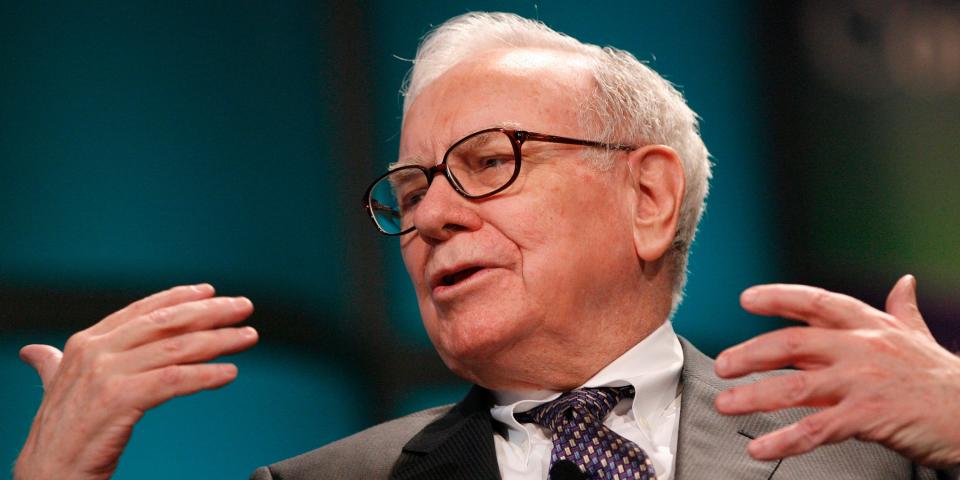Warren Buffett’s disciples got a rare peek inside his personal stock portfolio this week.
The investor sold nearly $500 million of stocks over 20 years, ProPublica reported, citing IRS data.
Buffett’s private holdings have reportedly included Wells Fargo, Walmart, and Johnson & Johnson.
Warren Buffett’s followers got a rare glimpse inside his personal stock portfolio this week, revealing the famed investor and Berkshire Hathaway CEO has counted Wells Fargo, Walmart, and Johnson & Johnson among his private holdings over the years.
Buffett’s disciples also gained a sense of the scale of his personal bets. The 93-year-old centibillionaire sold at least $466 million of shares between 2000 and 2019, and disposed of government and corporate bonds worth far more during that period, ProPublica reported this week, citing leaked data from the Internal Revenue Service (IRS).
ProPublica’s story accused Buffett of breaking his own rules at Berkshire, which bar employees with inside knowledge of what the company is buying, selling – or planning to buy or sell – from trading those securities. Buffett’s also stated that when it comes to his personal investments, he avoids the securities on Berkshire’s radar or in its portfolio given the potential conflicts of interest.
Buffett reportedly sold $20 million of Wells Fargo stock in April 2009, even though he was publicly talking up the bank as one of its largest shareholders at the time, and Berkshire boosted its stake during the next quarter.
He sold $25 million of Walmart stock four months later, during a quarter when Berkshire bolstered its position.
Finally, he disposed of $35 million of Johnson & Johnson stock in October 2012, shortly before Berkshire revealed it had trimmed its stake in the same company.
ProPublica said Buffett didn’t respond to questions about the trades. Berkshire didn’t immediately respond to a request for comment from Insider.
Adam Mead, the author of “The Complete Financial History of Berkshire Hathaway,” shared one possible explanation for the trades on X.
“It kinda feels like Buffett wanted to get out of WFC and Walmart so Berkshire could have the shares and he wouldn’t be personally taking a seat at the shareholders table,” Mead said. “And I think he got out of J&J after BRK was done selling. I could be wrong. Hopefully he clears it up.”
Paying the bills
Regardless of any alleged impropriety, Buffett’s reported sales are noteworthy. They suggest that over a period of years, he personally owned at least $80 million worth of just three stocks.
It’s safe to say his portfolio is worth multiples of that, given Buffett is a long-term investor who doesn’t sell often, and the fact his bond disposals were much larger in dollar terms, according to ProPublica.
The fresh details of Buffett’s portfolio help explain how he pays his bills. After all, he only collects a $100,000 salary from Berkshire, and pays back half that amount to the company each year.
Moreover, he has never sold a share of his $100 billion-plus of Berkshire stock. Dividends and income from a portfolio that’s likely worth hundreds of millions of dollars, if not billions, probably help keep him afloat.
The presence of Wells Fargo, Walmart, and Johnson & Johnson in Buffett’s portfolio won’t surprise his acolytes.
Berkshire was a Wells Fargo shareholder for more than 30 years prior to 2022, and counted the lender among its top five positions for most of that time.
It first invested in Johnson & Johnson more than a decade ago, and still owned the pharmaceutical stock as of June.
Buffett’s company also owned Walmart for many years, and the mega-retailer ranked among its biggest bets at points.
Read the original article on Business Insider
Credit: Source link




